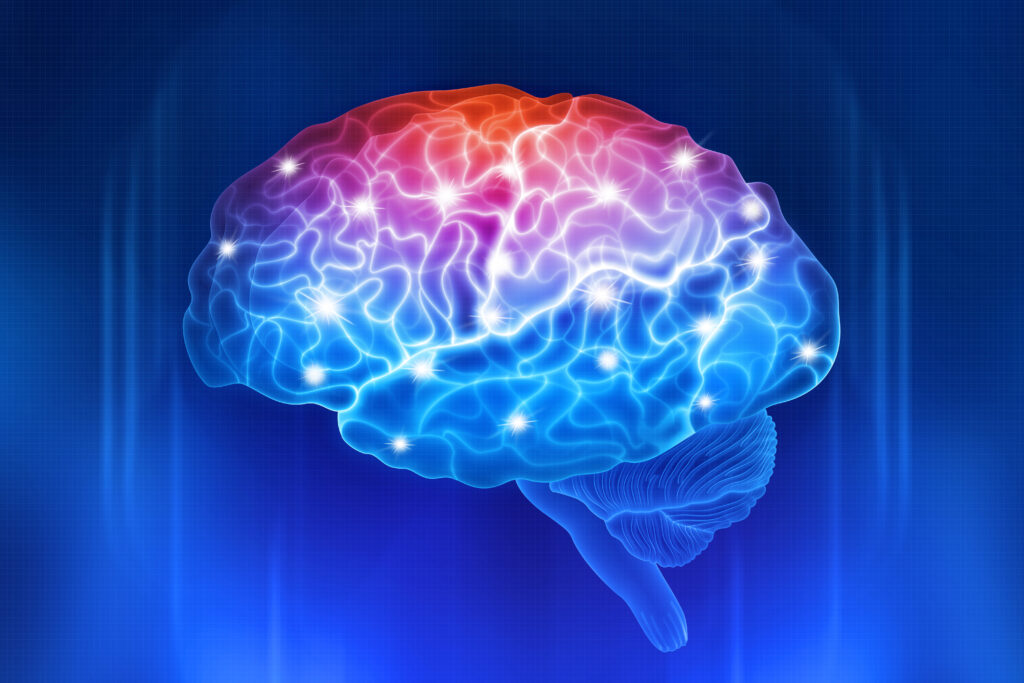Brain Awareness Week 2024, taking place March 11 to 17 this year, is a global campaign that aims to demystify the complexities of the human brain and promote the significance of neuroscientific research.
With neurological disorders affecting millions worldwide, the campaign plays a crucial role in raising awareness about diseases such as Alzheimer’s disease, Parkinson’s disease, stroke, schizophrenia and depression. It also emphasizes the importance of brain health across the lifespan, advocating for strategies to maintain brain function, improve mental health and enhance quality of life.
The theme of Brain Awareness Week 2024 is “The Changing Brain,” which brings a focus on aging and how the brain changes with time. This relates to neurological conditions like dementia and Alzheimer’s disease, which account for up to 70 percent of dementia cases. Cognitive decline in dementia frequently leads to a loss of independence and the need for continuous care.
Globally, more than 55 million people have dementia, with 60 percent living in low- and middle-income countries. In the US, it is estimated that over 6 million people have Alzheimer’s disease.
Neurological disorders affect millions of individuals worldwide and are the leading cause of disability and the second leading cause of death.
The annual Brain Awareness Week campaign, led by the Dana Foundation, mobilizes a global partnership of government agencies, educational institutions and interest groups to enhance public awareness about the brain and brain science.
Through coordinated events, workshops and informational sessions, Brain Awareness Week aims to educate the public on the progress and benefits of brain research, emphasizing the importance of brain health and the impact of neuroscience on society. The week-long celebration is also a call to action for increased support and funding for neurological and psychological research.
XTALKS WEBINAR: Clinical Use of Blood Biomarkers in the Era of Disease Modifying Treatments for Early Symptomatic Alzheimer’s Disease
Live and On-Demand: Tuesday, March 26, 2024, at 1pm EDT (10am PDT)
Register for this free webinar to learn about different Alzheimer’s disease biomarker testing modalities and the particular promise of high-performance Alzheimer’s disease blood tests.
Brain Awareness Week: Areas of Focus
Education
Education is a key focus of Brain Awareness Week. Through workshops, lectures and interactive sessions, experts aim to inspire the next generation of neuroscientists and educate the public about the brain’s functions and the importance of scientific research in solving neurological and psychological conditions. Educational activities are designed to make neuroscience accessible to people of all ages, encouraging curiosity and understanding of one’s own brain and its capabilities.
Neuroscientific Research
Another crucial aspect of Brain Awareness Week is neuroscientific research. This includes discussions on cutting-edge technologies and methodologies in brain research, such as neuroimaging, genetic engineering and artificial intelligence. These tools are not only helping provide deeper insights into brain function but also paving the way for innovative treatments and therapies for brain disorders.
Mental Health
Mental health is also a key theme during Brain Awareness Week. In recent years, there has been a growing recognition of the importance of mental health in overall well-being. The campaign provides an excellent opportunity to discuss the neurological underpinnings of mental health conditions, destigmatize mental illness and promote mental health awareness and education. By focusing on the brain’s role in mental health, the campaign encourages a more holistic approach to mental health care and support.
Community Involvement
Another important element of Brain Awareness Week is community involvement. Across the globe, universities, research institutions, hospitals, schools and community groups organize events and activities that are open to the public. These events not only raise awareness about the brain and its disorders but also highlight the importance of public support for neuroscience research. Community participation is vital in advocating for increased funding and support for brain research, which is essential for advancing our understanding and treatment of neurological and psychiatric disorders.
Brain Research
The landscape of brain research is rapidly expanding and evolving, with significant advancements and regulatory approvals marking a new era in the treatment of brain diseases.
With neurological and mental health disorders on the rise, the need for advanced research and effective treatments has never been more critical.
The following is an overview of some of the latest breakthroughs and regulatory milestones in neuroscience and brain health.
Targeted Therapies
While targeted therapies like Biogen’s Aduhelm (aducanumab) and Leqembi (lecanemab) that target beta amyloid-based plaques in the brain, a hallmark pathology of Alzheimer’s disease, initially held much promise, their US Food and Drug Administration (FDA) approvals have been controversial due to doubts about their clinical benefits. Given this, Biogen announced last month that it is discontinuing its Aduhelm program.
Despite the disappointing launch of Aduhelm and questions around Leqembi, companies like Eli Lilly are continuing to pursue their beta-amyloid monoclonal antibody therapies. Lilly is currently conducting a Phase III trial evaluating its beta-amyloid targeting monoclonal antibody, donanemab. In July 2023, the company shared data from the trial that showed donanemab could slow cognitive and functional decline in individuals with early symptomatic Alzheimer’s disease. Other companies are developing targeted therapies against other pathological biomarkers in dementia and Alzheimer’s, including total and phosphorylated tau protein and neurofilament light (NfL).
Brain-Computer Interface (BCI) Technology
BCIs have been gaining a lot of interest for their potential to allow communication between the brain and electronic devices. The technology has shown promise in helping individuals with severe disabilities regain the ability to communicate and control assistive devices, and restore function affected by neurological disorders. Notably, companies like Neuralink have begun recruitment for human trials to test the technology and last month, CEO Elon Musk announced that the first patient had been implanted with the company’s brain chip, which already allows them to move a computer mouse with their mind.
Psychedelics in Mental Health
There has been growing interest in psychedelics for treating psychological disorders. Research into substances like psilocybin and MDMA has shown potential in treating conditions such as post traumatic stress disorder (PTSD), depression and anxiety, with some even being close to regulatory approval. This indicates a significant shift in the psychedelic industry, moving from pilot studies to broader explorations and supported by new guidance from the FDA.
In December 2023, the agency accepted Lykos Therapeutics’ new drug application (NDA) for midomafetamine (MDMA) capsules for use in combination with psychological intervention for individuals with PTSD. It granted the application priority review status, setting a Prescription Drug User Fee Act (PDUFA) target action date of August 11, 2024.
MRI Technology
The evolution of magnetic resonance imaging (MRI) machines is another area of significant advancement. On one hand, there’s a trend towards larger, more powerful machines offering unprecedented insights into the body. On the other, the development of smaller, portable MRI machines is favored for their ease and convenience. Hyperfine’s Swoop Portable MR Imaging System, was the first portable MRI that received FDA 510(k) clearance back in 2020. The Swoop system recently received FDA clearance for new AI capabilities, including expanded AI denoising and advanced post-processing features. This year, Neuro42’s portable MRI scanner was granted FDA clearance in February.
Neuromodulation Therapy
Neuromodulation, the delivery of electrical stimulation or chemical agents to alter nerve activity, has been gaining significant attention for its potential to treat various neurological diseases. In 2021, the FDA granted marketing authorization to Helius Medical Technologies’ portable neuromodulation stimulator (PoNS) to help improve gain in patients with multiple sclerosis (MS).
Boston Scientific’s Deep Brain Stimulation (DBS) Software received FDA approval last year for the treatment of Parkinson’s disease and essential tremor. In January this year, Medtronic’s RC DBS system received FDA approval for the treatment of patients with movement disorders such as Parkinson’s disease, essential tremor and dystonia as well as epilepsy. There have been several approvals recently for neuromodulation devices for the treatment of chronic pain as well.
In Vitro Diagnostic (IVD) Devices
New assays and tests that can help in the earlier and more accurate diagnosis of neurological disorders is a key area of development. This includes biomarker-based blood or cerebrospinal (CSF) tests that may help diagnose conditions like dementia in earlier stages. Fujirebio’s Lumipulse IVD for detecting beta-amyloid in CSF was approved by the FDA in 2022.
In 2023, the FDA granted clearance to two of Roche’s Alzheimer’s disease CSF assays, the Elecsys beta-Amyloid (1-42) CSF II (Abeta42) and Elecsys Total-Tau CSF assays, which detect the Alzheimer’s biomarkers beta-amyloid and tau proteins, respectively.
While not currently FDA authorized but developed and validated in a manner consistent with Clinical Laboratory Improvement Amendments (CLIA) requirements, Quanterix’s LucentAD test measuring phosphorylated tau181 is designed to help with early Alzheimer’s disease detection.
The global neurological disease treatment market is expected to grow significantly, driven by the increasing prevalence of neurological disorders such as Parkinson’s disease, Alzheimer’s disease and MS. The market growth is further supported by rising healthcare spending, advancements in healthcare infrastructure and higher diagnosis rates in both developed and developing countries. Key market segments include drug types like antiepileptic, antipsychotic, antidepressant, cholinesterase inhibitors and NMDA receptor antagonists.
The neurodegenerative disease market alone, valued at $51.2 billion in 2023, is anticipated to reach $96.4 billion by 2032, growing at a compound annual growth rate (CAGR) of 7.3 percent. The central nervous system (CNS) therapeutics market also shows significant growth, driven by the rising burden of CNS diseases, new funding for product development and increased regulatory approvals.
Brain Awareness Week serves as a vital platform for advancing public understanding of the brain, promoting brain health and highlighting the importance of neuroscience research. Through education, community involvement and a focus on the latest scientific advancements, the campaign aims to increase awareness about brain-related disorders and encourage the development of new treatments and therapies.











Join or login to leave a comment
JOIN LOGIN